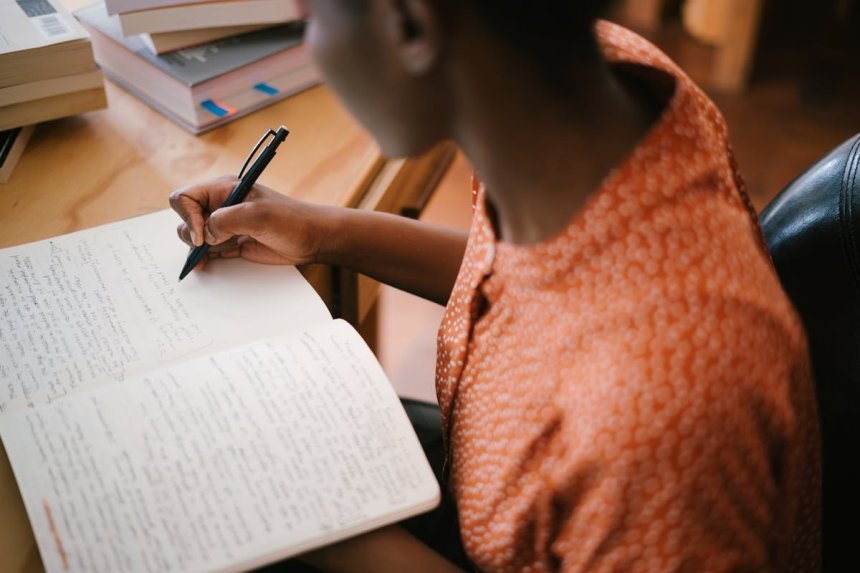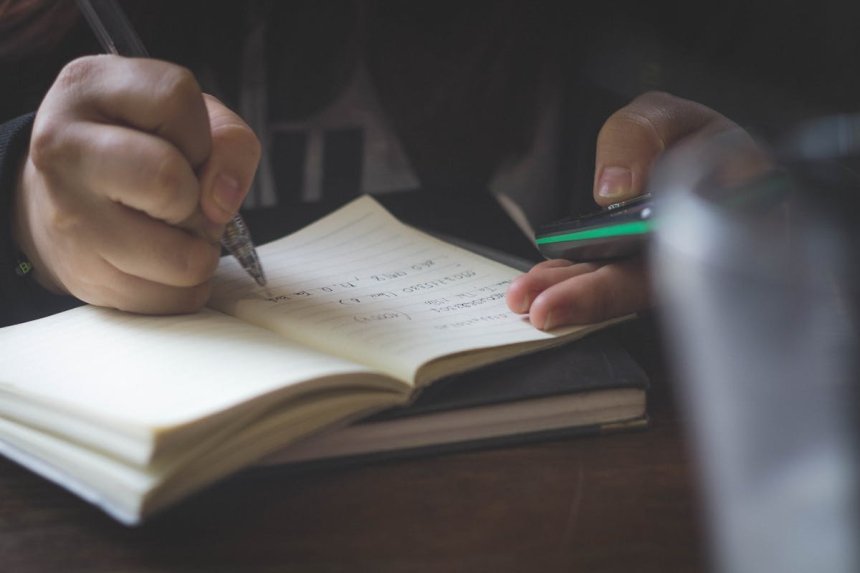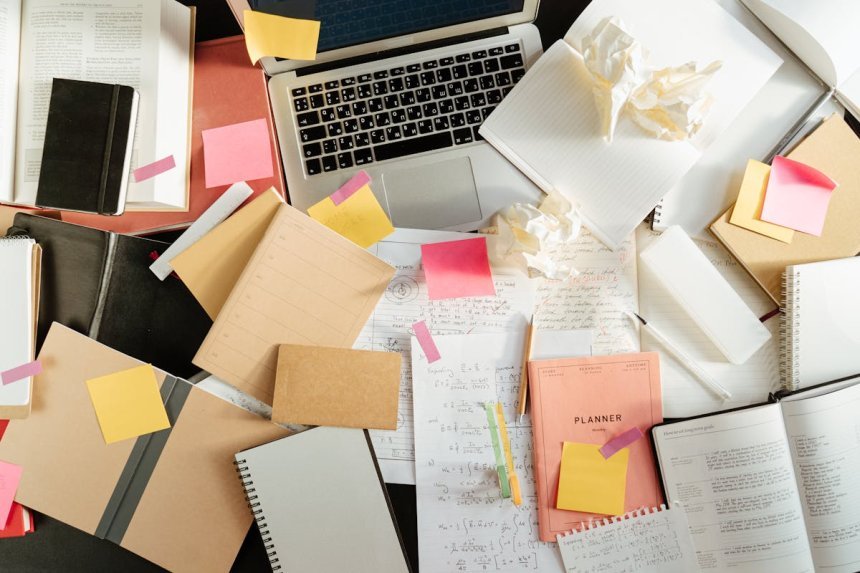13 tips on how to improve concentration
It would be so great to know how to improve concentration, wouldn't it? After all, who has never turned on the computer to study and after 5 minutes was on Facebook? Or picked up the phone to check the time and ended up on Instagram stories?

It would be so great to know how to improve concentration, wouldn't it? After all, who has never turned on the computer to study and after 5 minutes was on Facebook? Or picked up the phone to check the time and ended up on Instagram stories? When we sit down to study or do any other activity that requires concentration, it's easy to get distracted. Sometimes, even tidying the room seems more appealing!
However, staying focused is necessary not only to be more productive and keep your activity schedule up to date, but also to carry out your tasks with quality.
But how can you improve your concentration? There are some good practices that you can adopt in your daily life to better dedicate your attention to what is really necessary and achieve better results in your studies and activities.
We have put together 13 tips for you! Want to check it out?
Tips on how to improve concentration when studying

Self-awareness, resolving external distractions, and staying offline are some important strategies to help you stay focused. Below, see all 13 tips on how to improve your concentration while studying!
1. “Know thyself”
As the philosopher Socrates once said, self-knowledge is essential for many aspects of your life: to know how to deal with different situations, what your limits are, and much more. And this is no different for you who want to know how to improve your concentration!
Don't understand the relationship between concentration and self-knowledge? Let us explain: many distractions can have internal causes . If you are a very anxious person, for example, it can be difficult to stay focused with so many worries going around in your mind.
If you know yourself, it becomes easier to understand what you can do to deal with these internal issues. Let’s go back to the example of anxiety: some breathing techniques can help you stay more focused on the present. In addition, you can seek psychological treatment, for example, which will help you have a healthier routine.
2. Address external distractions
It’s not just internal issues that can be affecting your concentration. It’s common to come across various aspects of the environment that distract our attention.
If your study space is disorganized, for example, it can be a negative aspect for your concentration. Remember that too many things cluttered and out of place can get in your way. So, try to keep your study table clean and only have what is necessary.
Also, pay attention to noise. The place where you are doing your activities may not be the most appropriate because of the sounds that can distract you.
3. Go offline
We know that cell phones are a huge source of distraction. That's why it's best to keep them on airplane mode or away from you when you have to study or do any other specific activity.
We are not saying that the internet is not useful for studying! On the contrary, here we find many materials that can help us increase our knowledge.
However, always remember to exercise moderation and stay focused!
4. Set a goal
To be successful in your studies or in any other activity, you need to have your goal in mind. There is no point in applying all the techniques we mention here to learn how to improve concentration if you do not know where you want to go and what you will achieve with it. After all, your goal is what will motivate you to study or carry out your other tasks!
Therefore, before you start studying , for example, understand what you need to learn and break down the topics that need to be covered in your routine. Plan what you should study each day, including the times, subjects and topics you should learn.
5. Take breaks
No matter how excited you are about your studies or the work you are doing, don't forget to take breaks.
Get up, leave the room for a while, drink some water, or even use this break to check your social media. However, control the length of your break so that it doesn't last longer than necessary.
A good tip is to apply the Pomodoro technique to your study routine! This way you can maintain balance, dedicating the necessary time to what you need to focus on and not forgetting to take breaks, which are also very important for maintaining a good level of productivity.
6. Use music to your advantage
Listening to music can often help you concentrate! But be careful, don't put on that song that makes you feel super excited, like you want to sing or dance, okay? The best thing to do is to put on calm music, preferably in other languages. That way, you'll be less likely to lose your concentration by focusing on the lyrics.
Plus, if you're in a public place, studying with headphones on can help send the message to others that it's not a good time to talk!
7. Study in blocks
Instead of studying everything at once, “break” your studies into blocks. This helps you feel a sense of accomplishment at the end of each completed module, which ends up motivating you even more to study what’s left.
This is a good tip for those of you who are looking to learn how to improve your concentration! After all, you avoid the frustration of feeling like you can't manage to study enough and you start to see each day as a goal to be achieved.
8. Put an end to it
Remember when we talked about the study schedule in the tip above? So, let's reinforce its importance here!
For each study day, set a time to finish. This will help you understand how to optimize the time you have and, consequently, stay focused. After all, you won't be able to put off what you need to do in your schedule until later.
9. Keep snacks close by
Have nutritious foods on your desk to snack on. Feeling hungry is a big reason for losing focus and can take away your focus if you have to stop studying at an inappropriate time to go to the kitchen.
Some foods that help you study are: nuts, almonds and even chocolate, as long as it is dark chocolate. But remember: avoid eating too much before studying to avoid that famous urge to take a nap.
10. Use rewards
To stay motivated and, consequently, improve your concentration, you should offer yourself some kind of reward. As strange as it may sound, this will give you the “boost” you need to focus on your studies.
For example: decide that after finishing chapter X, you can sit on the couch for a while and watch an episode of your favorite series. The desire to have this moment of rest can motivate you to study without interruptions.
11. Sleep, sleep and sleep!
There's no point in sleeping little and then drinking liters of caffeine: your studies won't be as productive as you wanted.
So, respect the recommended hours of sleep! Sleep 7 to 9 hours a night to wake up refreshed and ready to “dive” into planning the day.
12. Drink water
Drinking water benefits brain activity and improves the ability to complete tasks faster . On the other hand, dehydration can cause migraines, stress and make it difficult to focus on studies.
So, before you study, place a bottle of fresh water on your desk so you always have it within reach. Staying hydrated will increase your concentration level!
13. Be flexible
We’ve talked about the importance of scheduling for good productivity. However, don’t let your planning dominate you!
If you think you should spend more time studying a subject instead of moving on to the next one, give it time. The study plan should help you with your routine, but the level of depth of each subject is up to you.
If you are not confident, continue where you think is appropriate and then, little by little, you will adjust your planning.
Share
What's Your Reaction?
 Like
0
Like
0
 Dislike
0
Dislike
0
 Love
0
Love
0
 Funny
0
Funny
0
 Angry
0
Angry
0
 Sad
0
Sad
0
 Wow
0
Wow
0













